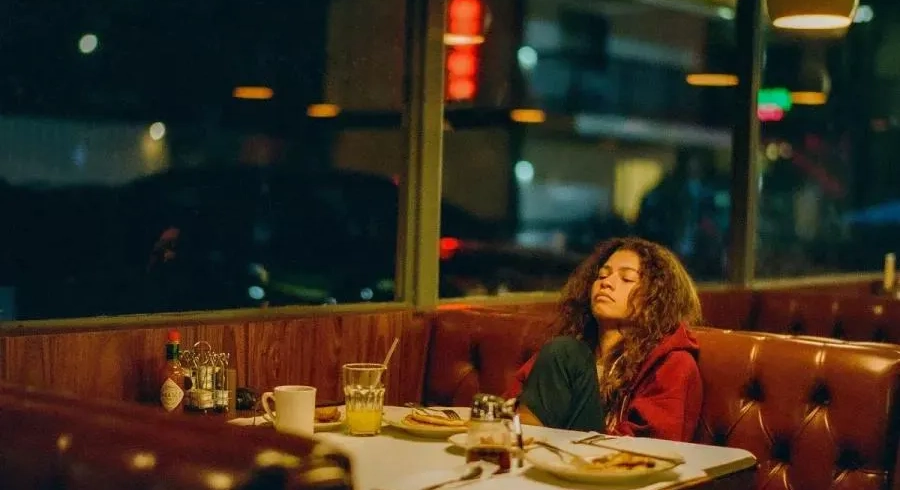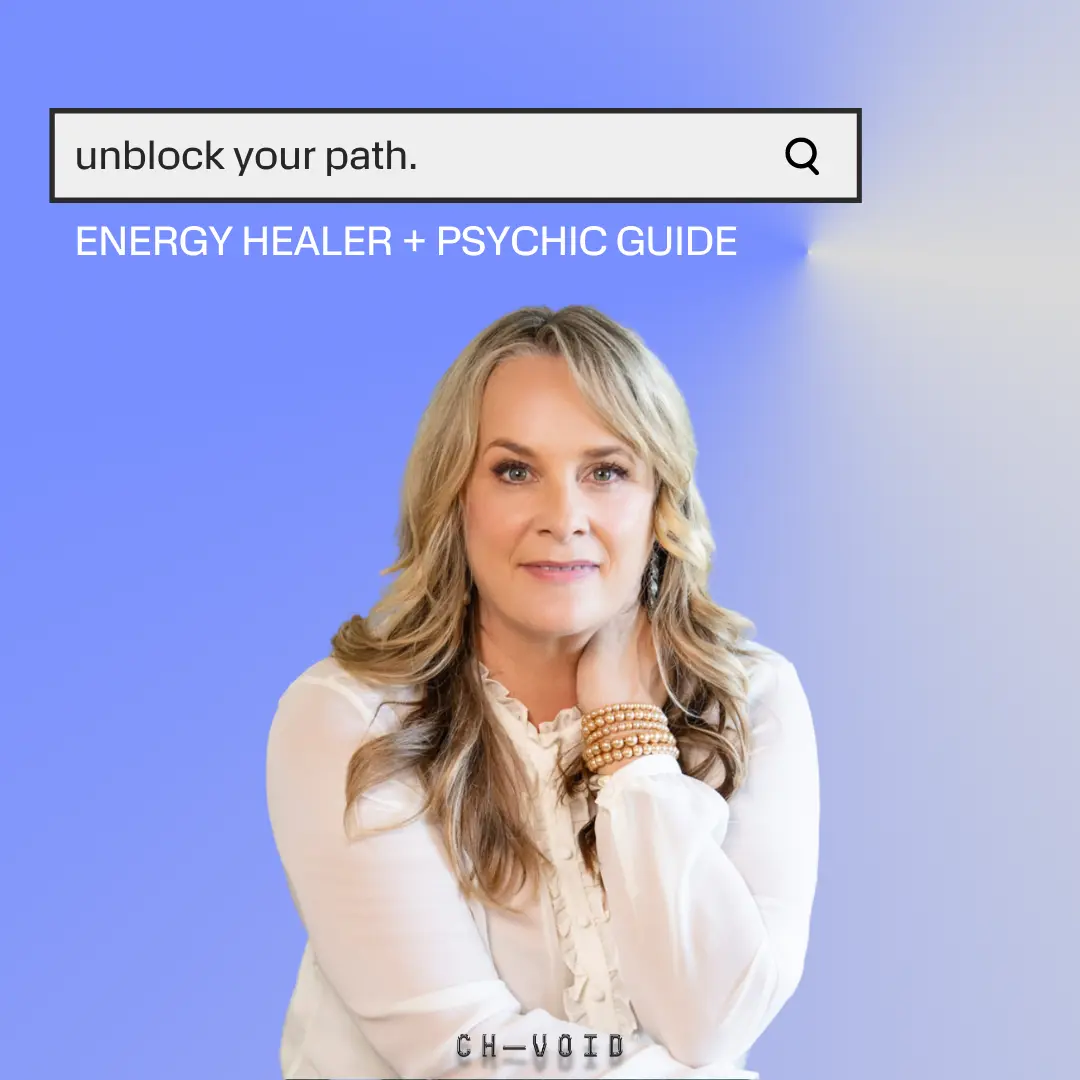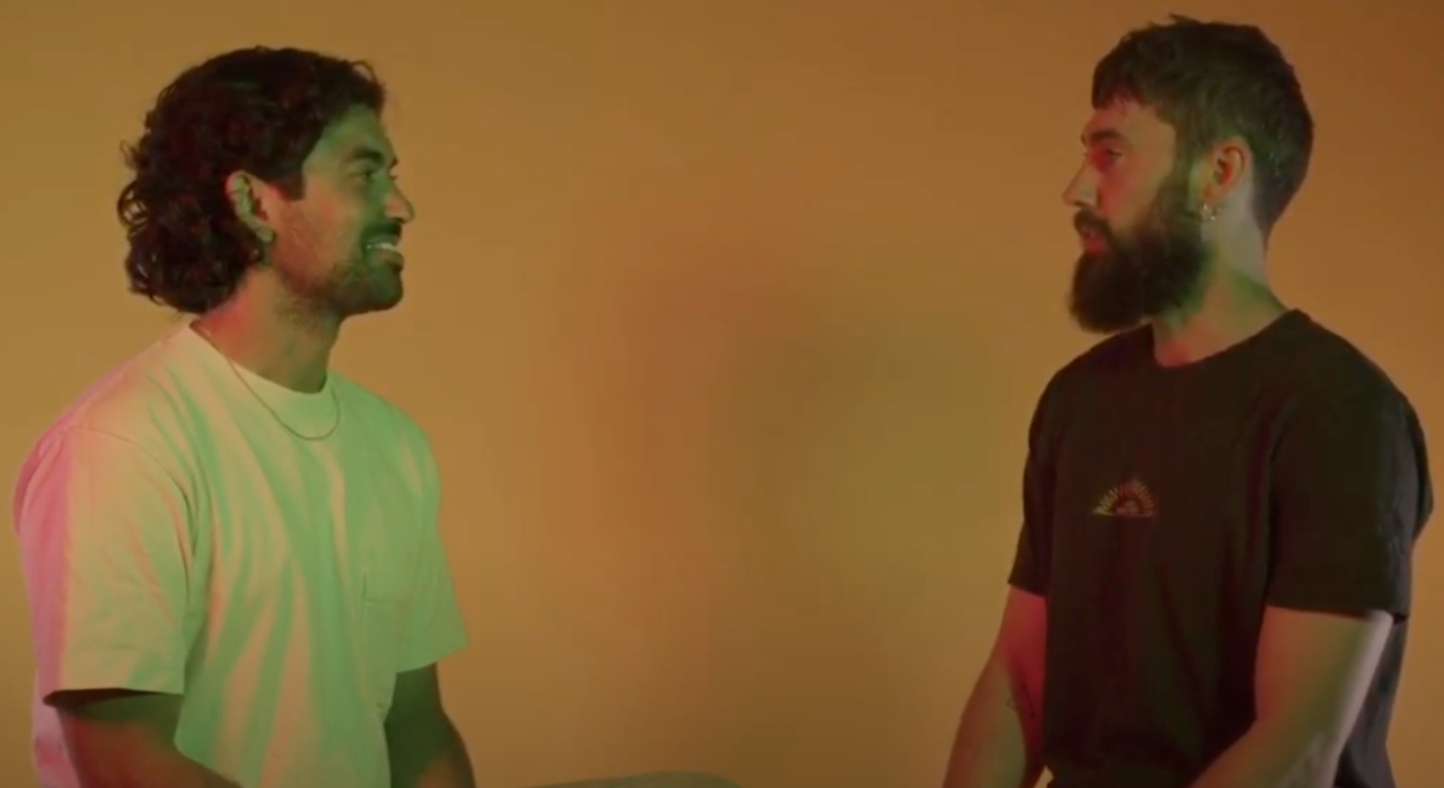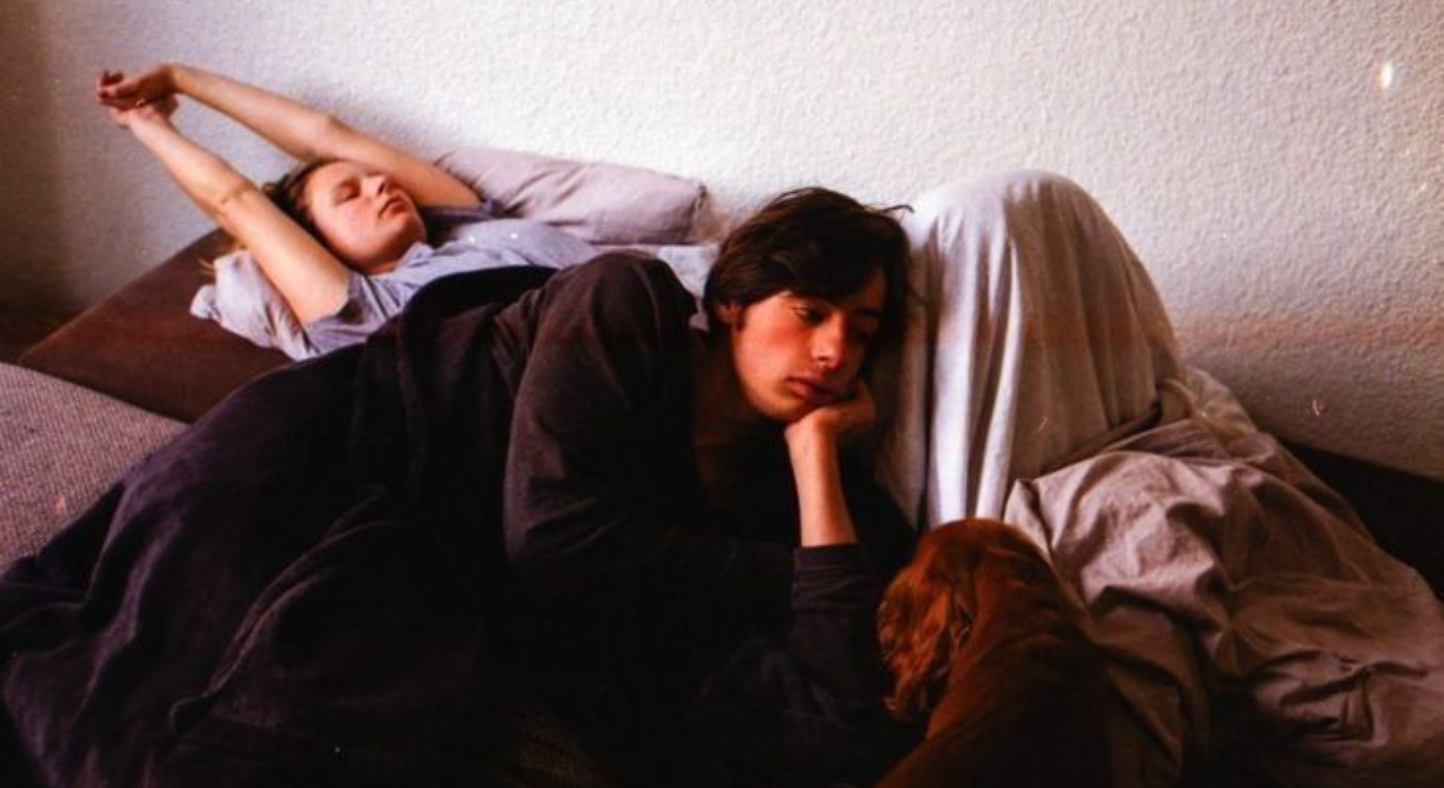I AM RUE FROM ‘EUPHORIA’, AND THAT USED TO SCARE ME
REPRESENTATION IS IMPORTANT, BUT THERE ARE RUES IN YOUR LIFE WHO NEED YOU NOW.
The following essay contains graphic descriptions of substance abuse.
My name is Addis Fouché. I abused substances of all kinds, but particularly alcohol and later cocaine, from ages 14 to 25. I lived an eerily similar life to that of television character Rue Bennett from Euphoria for over 10 years, and in some ways, I’m still existing between escaping and surviving despite now practising sobriety. Zendaya’s role in the HBO series accurately depicts the co-existence of solitude, anger and shame that many addicts experience. I still feel those kinds of pain, and that’s okay. I am Rue and I don’t think I’ll ever not be Rue. That’s okay, too.
Euphoria is an American teen drama created by Sam Levinson, a recovering addict himself, that first aired on HBO in 2019. With its shockingly beautiful cinematography, youthful humour and catchy musical score, Euphoria has captivated audiences around the world and won multiple awards, including a Primetime Emmy Award for Outstanding Lead Actress in a Drama in 2020. However, given her unbelievably realistic portrayal of addiction in season two, we need run my girl another Emmy.
“[Rue] hits rock bottom,” Zendaya explained in a recent Instagram post, “It’s [her] hope for people watching that they still see her as a person worthy of their love. And worthy of their time.” A goal of the show is evidently to humanize not only the protagonist, but also those battling addiction in real life. I strongly believe that she did exactly that, and I am immensely grateful to Zendaya for telling my story. Thank you so much, Z.
For over a decade I became increasingly unable to turn down a line of cocaine and increasingly familiar with this feeling of loneliness that multiplied in intensity after losing someone I loved to medical complications, just like Rue. Sometimes it feels strange to call Murphy my boyfriend, because we didn’t like that term or subscribe to typical heteromonogamy, but I often call him that to simplify what he meant to me.
I began using substances in 2009 at boarding school—Murphy’s passing in 2016 did not cause my addiction, but the loss only intensified the pre-existing trauma responses I clinged to. We never did drugs together, nor did he pressure, ask, or entice me to do them at all. I want to set that straight from the beginning.
I met Murphy in 2013, during my first semester of freshman year at Middlebury College, an elite-liberal arts college in idyllic Vermont. I often jokingly refer to that school as a “traumatic summer camp,” due to its serene beauty, high concentration of whiteness, overwhelmingly wealthy student body and all the fuckery that those last two engender.
Murphy and I lived on opposite sides of the same dorm, but always seemed to bump into each other. Our connection was strong, although so was the pressure to be in some sort of “situationship” at Middlebury—but it couldn’t be with just anyone. People dated and hooked up largely within their social circles, and to my knowledge, there were few examples of serious dating outside of those circles.
As much as we cared deeply about each other, we knew that we were 19, in a toxic environment and around lots of interesting (read: hot) new people. Strict commitment did not appeal to either of us, and neither did publicizing that he (rich, white, from Colorado) was involved with me (not rich, Black, from Brooklyn) to a judgemental student body. So we kept our relationship a secret that only our two closest friends really knew about. Sneaking around was totally a turn on, but that also meant that when Murphy died I essentially mourned him in secret, too.
Rue Bennett, a Virgo like me, lost her father at age of 14. These losses are different kinds of pain; Rue will never know mine and I will never know hers. But I do know that I felt similar shame and fear for believing that drugs promised me everything that Murphy’s love gifted me. Trust. Intimacy. Power. Patience. Compassion. Space. I had it all every time I bought a bag, and needed it back every time I finished that bag.
While watching season two, I noticed that Rue’s other mental health issues aside from addiction have been largely ignored. In season one, the Euphoria main character explains that she was diagnosed with OCD, ADD, Generalized Anxiety Disorder, and possibly Bipolar Disorder. Coincidentally, I also have most of these conditions: certain sounds make me feel like my brain is going through a blender, sometimes I get panic attacks in my sleep and my manic episodes have driven me to suicidal ideation. The feeling of relief that Rue described when trying her father’s Oxycontin—“The feeling I had been searching for my entire life… safe in my own head”—was all too familiar to me.
To be a young, queer Black girl existing among everything that you’re not is a lonely state of being. Living in our reality is a particularly consuming type of torture. Especially when you lose the one person that made you feel safe.
I found control in substances that can be bought, not necessarily earned.
Zendaya has said “it’s important that we continue to have that love” for Rue, and I agree. Since the first episode of season two aired, it’s been dually comforting but (mostly) infuriating that the discourse I’ve seen online and in-person about Euphoria is largely supportive of Rue.
Viewers were heartbroken by scenes revealing aspects of addiction that are harder to watch, including mental breakdown, physical withdrawal and intravenous drug use. I was heartbroken myself to not feel the same care from people I knew in real life that they extended to Rue, a fictional character depicting an almost identical storyline to mine. Too many people in my life show Rue the support I wish I had gotten from them, which makes me feel that familiar loneliness again.
For weeks, I looked at Twitter threads and Instagram stories of people describing how hard it was to see Rue slowly then rapidly decline. When I finally asked a few people why this was hard, they all said some version of: “It’s because I love her so much and I don’t want to see her in pain.” I get that, I do. But I’m real. I’ve always been. I’m right here. I’ve lived through that pain. I am living that pain. Why is a fake character getting real love from the same people who mostly ignored my similar struggles?
When I watched Euphoria every Sunday at 10pm, I thought about Murphy and cried. I thought about him explaining the word “swole” to me. Apparently it’s used by some men to describe being muscular? In return, I gently clarified that the word “tight” does not mean “cool” if you’re young, Black and from Brooklyn. We came from two different worlds, but were usually able to explain them to each other respectfully.
I thought about the first time we put on Kanye West’s Yeezus as a joke while we were having sex—a moment that somehow became “a thing” after that. Even in intimacy, we always had a way of making things fun, and we never had to pretend to be people we weren’t. The lyrics, “All that cocaine on the table / you can’t snort that,” from “Blood On The Leaves” hit different after Murphy died. For years afterwards, I skipped that song when it came on shuffle.
I thought about how the first time I met him, we were in our dorm with lots of new friends and I was sober. And how the last time he saw me was alone outside. I was high on molly, weed and too many shots of Fireball; he told me he was in love with me for the first time right then under a starless night sky. He loved an addict, and he wasn’t scared to do so.
I thought about how when he died, I was thousands of miles away taking a nap and I woke up to seven missed calls from my best friend. She wanted to be the one who told me that he wasn’t coming back to school in the fall. For years after his death, I would stay up for two or three days at a time on stimulants. What if something else happened while I wasn’t awake? Unfortunately, my sleep schedule is still fucked without the drugs.
I thought about how when I’d snort lines, mostly alone especially towards the end of my active period, and I was in so much pain that I’d say aloud to myself two things: “My nose hurts,” because my sinuses ached so intensely that I had to speak it to believe it, and “I’m sorry.” I apologised to many people alone at 3am while my nose bled by the light of a powder-covered Macbook Air. Including Murphy.
I thought about what he looked like on his bike, of course never using a helmet and usually wearing something I would only sport ironically. How did he ride down steep hills so fast with one hand on the handlebars and one hand waving to me? Though I mostly ride bikes that go nowhere at SoulCycle, I still feel like I’m getting to where I need to be. I’m moving on my own time, at my own pace, in my safe space.
* * *
It is impossible for me to watch Euphoria without remembering Murphy, but Zendaya’s wish that the show’s audience grants Rue unconditional love cannot come true without us all examining our own relationships with addiction. Whether you’re an active addict, recovering addict, relative of an addict, or walking by strangers who are using publicly, everyone still has some understanding of addiction.
It’s not lost on me that Rue’s mother treats her like a misbehaved child instead of someone suffering from multiple comorbid conditions. Sending her back to the rehab that didn’t work for her the first time is not an example of how to handle this illness with care. Rue shouldn’t feel punished; she’s not a bad kid.
It’s not lost on me that Rue’s on-and-off again girlfriend in the series, Jules, has a parent who also battled addiction. Jules said she loved Rue but still cheated on her. She did not see Rue as a whole person worthy of love in different forms. She failed to provide her struggling partner with the same respect, honesty and attention that she implicitly asks for from her romantic counterpart. No one is an addict first and partner second, identities and roles co-exist.
It’s not lost on me how Elliot, another character in the show, said, “I liked Rue the way she was.” Which to any addict translates to: “I liked Rue when she was my kind of addict, but her current display of addiction is beneath me.”
It’s not lost on me that less than 30 seconds after Cassie encouraged Rue to take sobriety slowly, she then discredited Rue’s truth by throwing her addiction in her face. “I don’t even know why you’re believing her, she’s a drug addict,” Cassie hurls while their friends and mothers are present.
It’s not lost on me that most of the people in Rue’s orbit are white or otherwise non-Black and outside of the LGBTQ+ spectrum. They can’t even describe the reality that she seeks to escape from.
It’s not lost on me that when Rue said, “You want me to stop doing drugs? Then what THE FUCK ELSE am I supposed to do?” I felt that in my soul. She isn’t saying I don’t have any other responsibilities, she’s crying, how else am I going to continue living if I don’t do this?
It’s not lost on me that not a single person on screen asked Rue what she needed or how to support her in a way that she would most appreciate. They were not supporting her recovery. They were avoiding blame, guilt and effort until Rue reached a kind of suffering they were uncomfortable with.
Like Rue, I’ve been let down by those who said they loved me, but abandoned me when my displays of crisis were some concoction of uncomfortable, inconvenient, and/or unfamiliar.
I felt defeated when the head coach asked me to take a break from the cross country team after a substance-related suicide attempt, then never asked how my healing process was progressing or said hello to me on campus again. She also then barred me from ever returning when she read an article that I wrote about identity and party culture, which mentioned drug use.
I felt defeated when my father told me to “stop doing corny shit” after I had confessed to relapsing the night before. This was particularly hurtful because his own father died of alcoholic cirrhosis when he was much younger. I understand that his trauma is valid, but it is also not mine to heal or absorb.
I felt defeated when Ben broke up with me via text after I did not live up to the fantastical version of myself that he imagined upon meeting me in 2019. Dear readers, you would not believe the number of people who are shocked that my IRL existence is not completely reflective of my online highlight reel! However, I still think about him, the post-breakup meeting in Washington Square Park months later, and the New Years Eve text exchanges.
I felt defeated when Matthew left me at a club because I was fucked up and therefore embarrassing him. Or when Charlotte asked for one of my old drug dealer’s numbers at her birthday dinner. Or when Bella dismissed my desire for a romantic relationship by saying that I couldn’t have one until I clocked a certain amount of sober time. She was convinced I would ruin it. She said that to me. Or when after getting sober, Derick said that his best memories with me were railing lines in the bathroom of the Standard Hotel. Is that all I was good for?
Addiction is not only lonely, it is also desolate by way of repetition.
To love Rue in the way that Zendaya and I both want is to also hold the people and systems which allowed her to succeed at being an addict accountable. It’s important to note that Rue isn’t failing at sobriety: Rue is accomplishing addiction. Addicts are not fuck-ups—please be mindful of the language that you use when you talk about us.
If you think you are watching Euphoria with love for Rue while you ignore the addicts in your life, then you are not actually watching Euphoria with love for Rue. You are fetishizing chaos and maintaining willful ignorance, intentionally or not. Give me the care that I deserve. Give all of Rue’s the care that we deserve. We need curious empathy, and we don’t heal alongside selfish grace.
* * *
I am Rue Bennett, and that used to scare me because I thought I was alone in my suffering forever. There is junkie in me. But now I know that there are many other Rue Bennetts, and even if most people cannot understand the physical pain withdrawal brings or the emotions that drive someone to rob strangers, there are people, like me, who do. In solitude there is comfort, but in community there is safety. And to all of my fellow addicts who are still using substances to combat loss: picking up will draw you further from the person that you miss, and eventually you’ll start to forget them and yourself too.
This is not a “coddle every addict” essay. We know we fucked up, massively and many times over. You don’t have to tell us. If there is one single thing we do know, it’s that we’ve directly caused internal and external damage. Some of it repairable and some of it unfortunately not.
I hurt friends, family and partners that I did love. I still love them. But hurt people, in turn, hurt people: I did not inflict pain because it granted me pleasure. I wasn’t born knowing how to cut lines or press pills. Neither was Rue. Neither were you.
Again, I’m not absolving addicts of the very real destruction that we’ve caused. This is an “if you love Rue, but you don’t show love to the actual people that Rue is based on, then you need to re-evaluate what love means to you” essay.
The truth was that I felt alone in my grief, abandoned by those I loved, and scared in my marginalized identity–but I was doing my best to survive.
Willingly living in sobriety feels like coming home from a really long vacation that wasn’t intended to be so long. You’re tired, the food in the fridge is now old, and getting ready for the next day sounds exhausting. But you know you’re safer in a meaningful way.
To my Rue’s out there, from another fellow Rue: please come home when you’re ready. There are so many of us waiting for you, and you don’t have to prepare for tomorrow alone.
Thank you to Zendaya for seeing me. Thank you to Murphy for loving me. Thank you to everyone who read this with open hearts. Let’s keep them open for the addicts who we know to be just sick people that had (or are having) a hard time getting well. Ask us what we need, tell us that you’re proud of us, and hold space for our realities.
And finally: run Zendaya the damn Emmy. Again.
If you would like support after reading this article, please utilise our free textline +61 488 848 782 [note: free in AUS only] to SMS chat with our team of sexologists, somatic healers and trauma counsellors. For instant support, call 131114 (AUS) / +1 800-273-8255 (US) or use this resource to determine the right number if you’re residing outside of these regions.





















